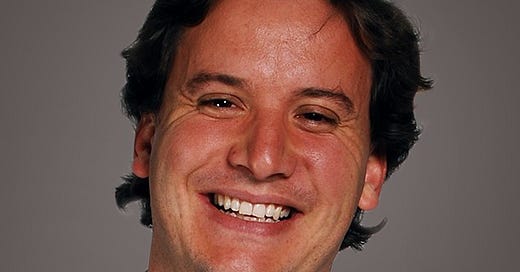UNGA: Interview with SG Special Envoy on Tech, Amandeep Gill | Microsoft: Interview with Chris Sharrock, Vice-President, UN Affairs and International Organisations | WTO: Public Forum Wraps-up
Ambassador Guilherme Patriota Leads Panel on the Amazon Rainforest Environmental Goods, UN Tech Envoy Amandeep Gill Speaks About AI and Accelerating the SDGs
Welcome to our special edition of The UN Brief.
We are covering the UN General Assembly. Today you will find:
My interview with UN Secretary General Special Envoy on Technology Amandeep Gill, scroll al…



